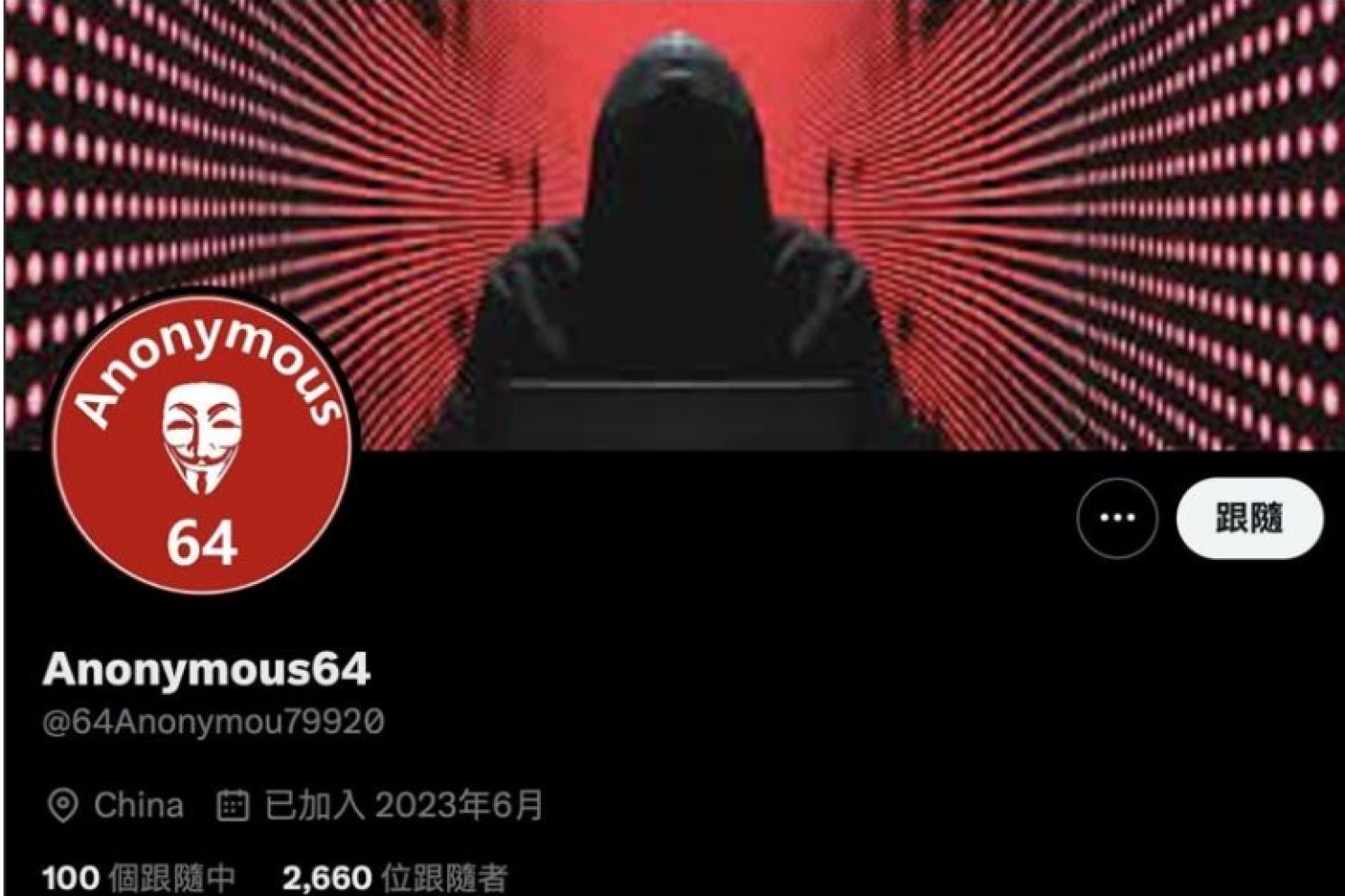
For Hitting China's Sore Points? Why ICEF Became First Case to Be ''Punished'' for Taiwan Independence
United Daily News Commentary, September 23, 2024
On June 21 this year, after mainland China issued an opinion on legally punishing Taiwan independence separatists for secession and incitement of secession, observers anticipated that this would not be taken as a mere declaration but that Beijing would definitely take follow-up action.
Sure enough, three months after this announcement was released, on September 23, the mainland China’s Ministry of State Security (MSS) launched a “case for investigation” against three personnel from the Information, Communications and Electronic Force (ICEF) Command under the Ministry of National Defense, on the grounds of a cyber-attack against the mainland. The three people became the first case in which Communist China publicly announced its punishment for supporting independence.
It is unsurprising that Beijing has taken new measures to “punish independence.” However, what is particularly interesting is that the people who were “put on the altar” as the first case are not politicians advocating or promoting Taiwan independence, but rather the “cyber army,” in the words of the MSS. This evidently differs from Beijing’s original claim that the punishment announcement was formulated to “in accordance with the law for separatism and the inciting of separatist crimes, to effectively safeguard national sovereignty, unity and territorial integrity."
Why were “hackers” and “cyber warriors” selected as the first case of mainland China's crackdown on independence supporters? We can perhaps get a glimpse of an answer from the document issued by the MSS.
On September 23, the MSS published an article titled “Undercovering the Taiwan Independence’ Cyber Army Anonymous 64.” The article stated: “Since this year, a hacker organization named “Anonymous 64” has been targeting mainland China, Hong Kong, and Macao, frequently conducting cyber-attacks, trying to gain control over relevant portals, outdoor electronic screens, and online television, and then illegally uploading and inserting content that slanders the mainland’s political system and major policies; confuses right and wrong; and spreads rumors.”
The MSS stated that the “Anonymous 64” organization does not comprise ordinary hackers, but a cyber army supported by Taiwan independence forces, suggesting that the true work of this cyber army is cyber warfare under Taiwan’s Ministry of National Defense. However, judging from the 72 posts published by “Anonymous 64” since its establishment in June last year, basically none of these posts are related to Taiwan independence. Instead, they are more like anti-Communist posts such as reminding the world to “not forget June Fourth.”
Therefore, the real reason behind the MSS deciding to take action against the three people, is likely that the organization hacked into mainland Chinese websites and there repeatedly spread “content that slandered the mainland’s political system and major policies.” Compared with Taiwan independence, these evidently are rather the trends of Taiwanese hackers about which Beijing is more concerned and to which it pays close attention.
In response to mainland China’s allegations, the ICEF Command responded that the accusation’s content was not true. It is worth noting, however, that “Anonymous 64” has been X (formerly Twitter) for more than a year. As of the morning of September 23, there were only over 2,600 followers, and the Internet attention was not substantial. The account’s 72 articles furthermore have no news value, yet they had repeatedly attracted reports from media friendly to the Democratic Progressive Party (DPP) in Taiwan. Thus, the connections are suggestive.
The MSS has made a big move by announcing that it will “open a case for investigation” against personnel of Taiwan’s ICEF Command. It is uncertain how much effect this will have on Taiwan independence supporters or Taiwan’s cyber army. However, the fame of “Anonymous 64” will greatly increase as a result, perhaps even to the point that it may become a representative “anti-Communist bulwark” on the Internet. This aspect also highlights Beijing’s current dilemma with Taiwan.
In the Taiwanese movie Three Evils, which was recently screened in mainland China, main character Chen Guilin was about to go to the police station to turn himself in after learning that he had stage four lung cancer, but by chance he saw himself on the wanted wall of the police station. Finding he was only ranked third on the police’s wanted list, he immediately decided to instead first get rid of the other two wanted criminals before his death.
Whether it is the list of “Taiwan independence supporters” earlier released by the Beijing authorities, or the high-profile investigation into the operators behind “Anonymous 64,” Communist China’s actions that are originally intended to punish support for independence may have the opposite effect in the end. Contrarily, it may inspire some people and organizations in Taiwan to work harder to “get onto the list.”